Are you noticing white spots on your teeth? Do discolorations make you feel self-conscious about your smile? A bright, white smile is something everyone desires, but white spots on teeth can sometimes stand in the way. These spots not only affect the appearance of your teeth but may also indicate underlying dental issues.
Understanding the causes and treatments for white spots on teeth can help you maintain optimal oral health. If you’ve noticed these spots, it’s best to consult your dentist for proper diagnosis and treatment.
What Are White Spots on Teeth?
White spots on teeth are a common dental concern that can be caused by enamel demineralization, excessive fluoride intake, or nutritional deficiencies. These chalky patches may not always be harmful, but they can indicate enamel weakening, increasing the risk of cavities and tooth decay.
While teeth can often be remineralized and strengthened through proper dental care, severe cases may require professional treatments like fluoride applications, enamel microabrasion, or veneers.
Common Causes of White Spots on Teeth
1. Dry Mouth (Xerostomia)
Saliva plays a crucial role in maintaining the pH balance of your mouth. A lack of saliva can create an ideal environment for bacteria to thrive. As bacteria produce acid, it leads to enamel erosion, causing white spots to develop.
Prevention Tip: Stay hydrated and consider using saliva substitutes or sugar-free gum to stimulate saliva production.
2. High Consumption of Acidic Foods
Acidic foods can gradually erode enamel, leading to white spots and other forms of discoloration. Carbonated sodas, lemonade, vinegar, citrus fruits, and sour candies are common culprits.
Prevention Tip: Limit acidic food intake and rinse your mouth with water after consuming acidic foods to neutralize the acids.
3. Poor Oral Hygiene & Plaque Buildup
Neglecting oral hygiene can lead to plaque accumulation. Bacteria in plaque produce acids that wear down enamel, leading to demineralization and white spots.
Prevention Tip: Brush twice daily with fluoride toothpaste, floss regularly, and use an antibacterial mouthwash.
4. Wearing Braces Without Proper Oral Care
Braces can make it difficult to brush and floss properly, causing plaque buildup in hard-to-reach areas. If plaque isn’t removed, it can lead to white spots on the teeth.
Prevention Tip: Use an orthodontic toothbrush, floss threaders, and water flossers to maintain good oral hygiene while wearing braces.
5. Hypocalcification (Mineral Deficiency)
When teeth lack essential minerals, they become prone to enamel defects known as hypoplasia. This condition results in weak enamel and visible white spots.
Prevention Tip: Maintain a balanced diet rich in calcium, phosphorus, and vitamin D.
6. Dental Fluorosis (Excess Fluoride)
Fluorosis occurs when teeth are exposed to excessive fluoride during childhood while they are still developing. This leads to white, streaky discoloration on teeth.
Prevention Tip: Monitor fluoride intake, especially in children, by using fluoride-free water and appropriate toothpaste amounts.
7. High Fevers and Medications
Illnesses with high fevers during childhood can interfere with enamel formation, causing white spots. Certain medications like antibiotics may also contribute to discoloration.
Prevention Tip: Consult a pediatric dentist if your child experiences prolonged fevers to minimize dental risks.
8. Smoking During Pregnancy
Maternal smoking during pregnancy can affect the baby’s dental health, leading to enamel defects and white spots.
Prevention Tip: Expectant mothers should avoid smoking and seek prenatal care to ensure their child’s oral health.
Effective Treatments for White Spots on Teeth
Depending on the severity and cause of white spots, various treatment options are available:
- Fluoride Treatments & Remineralization Gels: Strengthens enamel and reverses early signs of decay.
- Enamel Microabrasion: A minimally invasive procedure that removes surface stains and improves enamel appearance.
- Teeth Whitening or Bleaching: Helps blend the white spots with the surrounding enamel for an even appearance.
- Dental Veneers or Composite Resin: Provides a long-lasting cosmetic solution for extensive white spots.
- Dietary Changes: Increasing calcium and vitamin D intake can help maintain strong enamel and prevent future white spots.
How to Prevent White Spots on Teeth
Preventive care is key to maintaining a healthy smile. Here are some tips to keep your teeth free of white spots:
- Maintain Proper Oral Hygiene: Brush twice a day, floss daily, and use fluoride toothpaste.
- Drink Plenty of Water: Keeps saliva levels balanced and washes away harmful acids.
- Limit Sugary and Acidic Foods: Reduce intake of sodas, citrus fruits, and processed sweets.
- Use a Fluoride Mouthwash: Helps protect enamel from demineralization.
- Visit Your Dentist Regularly: Routine dental checkups ensure early detection and treatment of potential issues.
Final Thoughts
White spots on teeth may seem like a minor cosmetic issue, but they can indicate underlying dental health concerns. By understanding their causes, taking preventive measures, and seeking appropriate treatments, you can maintain a bright and healthy smile.
If you’re concerned about white spots on your teeth, schedule a consultation with Surya Dental Care for expert diagnosis and treatment options.

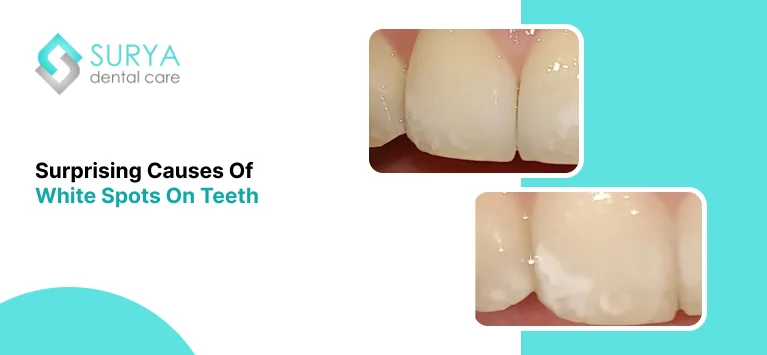



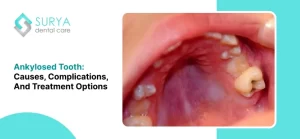

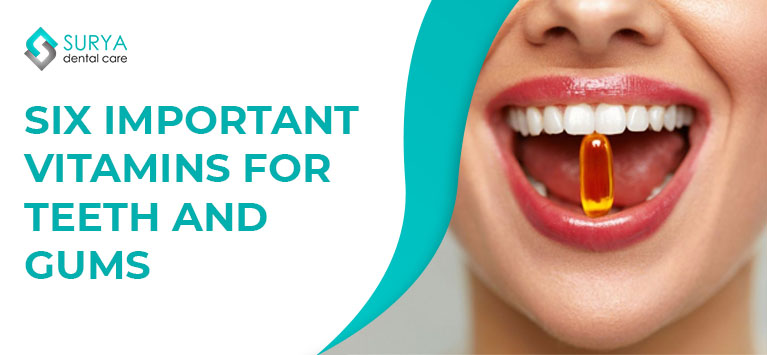
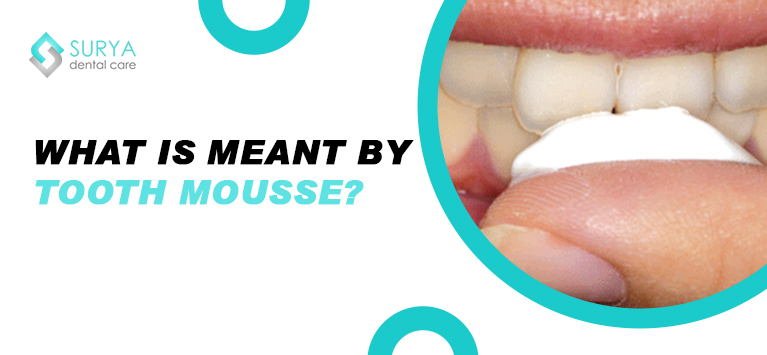
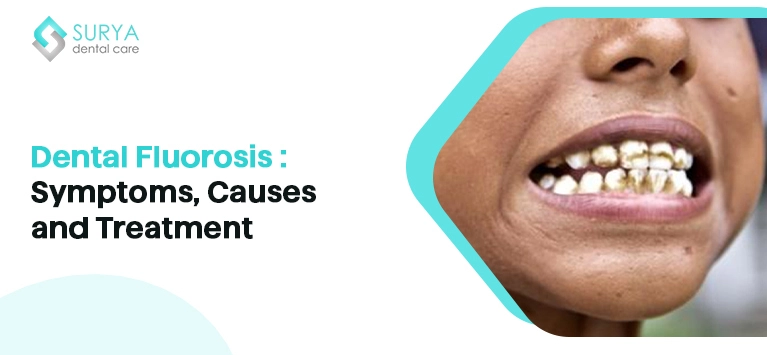

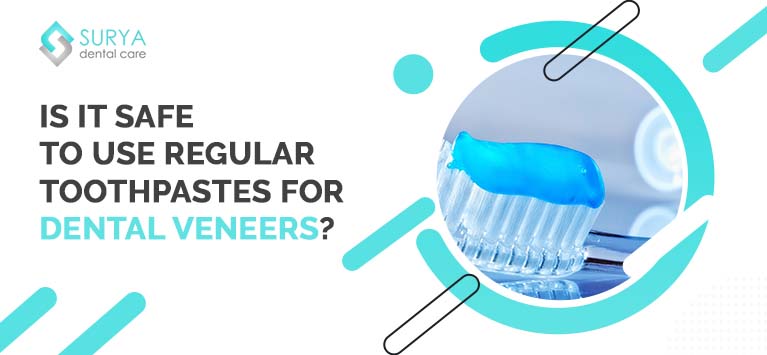


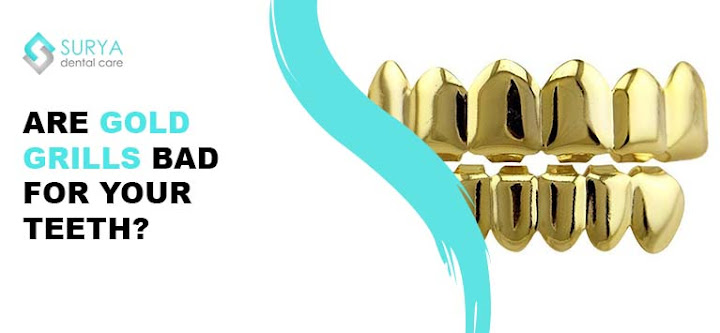


Leave a Comment